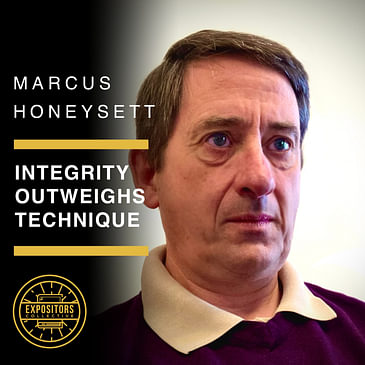Tune in to this deep-dive podcast episode where we explore the essence of spiritual leadership with Marcus Honeysett! We'll unpack the technical aspects of preaching, how the pulpit shapes a culture of truth and love, but also its limitations. Mike and Marcus delve into why a leader's character outweighs their skills, emphasizing the significance of imitation and emulation in molding effective leaders.
Discover how power dynamics impact a church environment and learn strategies to foster accountability. Marcus shares insights on establishing healthy church policies and effectively communicating them to the congregation.
If you're passionate about personal growth, spiritual leadership, and making a positive impact in your faith community, this podcast is a must-listen!
Marcus, the founding director of Living Leadership, is dedicated to supporting and empowering church leaders. His books, including Powerful Leaders? (IVP, 2022), highlight his commitment to nurturing effective leadership.
Twitter @marcushoneysett
Gospel Centred Preaching : Becoming the preacher God wants you to be
By Tim Chester & Marcus Honeysett
Recommended Episodes:
Preaching God's Grace to the Disgraced - Justin Holcomb: https://www.expositorscollective.com/podcast/2022/12/20/preaching-gods-grace-to-the-disgraced-with-justin-holcomb
Battling Pride in the Heart of the Preacher- Tim Chaddick, Clay Worrell, Nick Cady https://www.expositorscollective.com/podcast/2022/8/16/battling-pride-in-in-the-heart-of-the-preacher-panel-discussion-with-dominic-done-clay-worrell-nick-cady-amp-tim-chaddick
Preaching through Tension and Division: Julius Kim & Paul Hoffman : https://www.expositorscollective.com/podcast/2023/6/6/preaching-through-tension-and-division-with-matthew-kim-paul-hoffman-and-mike-neglia
Self Absorption is the Death Knell to Faithful Preaching - Paul LeBoutillier : https://www.expositorscollective.com/podcast/2022/12/6/self-absorption-is-the-death-knell-to-faithful-preaching-with-paul-leboutillier
For information about our upcoming training events visit ExpositorsCollective.com
The Expositors Collective podcast is part of the CGNMedia, Working together to proclaim the Gospel, make disciples, and plant churches. For more content like this, visit https://cgnmedia.org/
Join our private Facebook group to continue the conversation: https://www.facebook.com/groups/ExpositorsCollective





